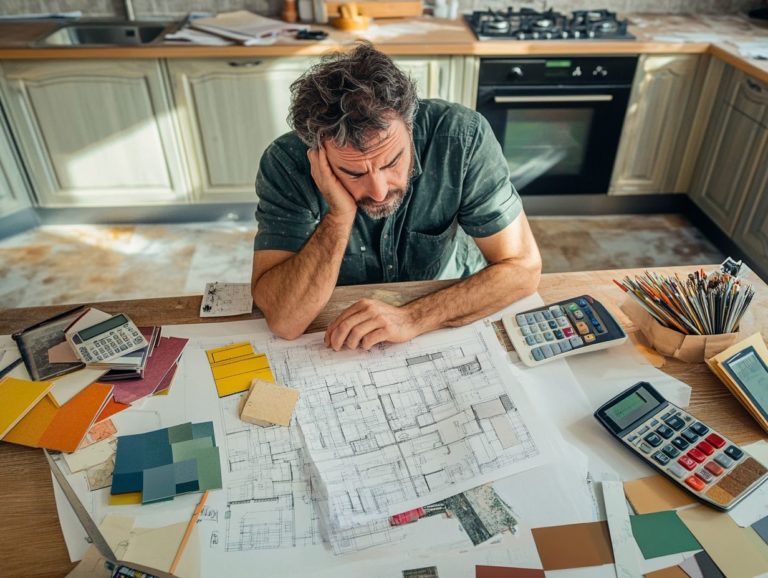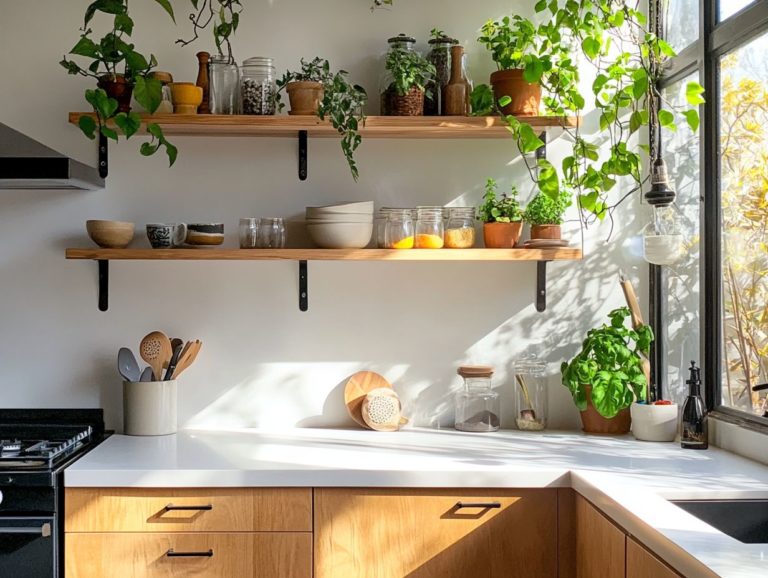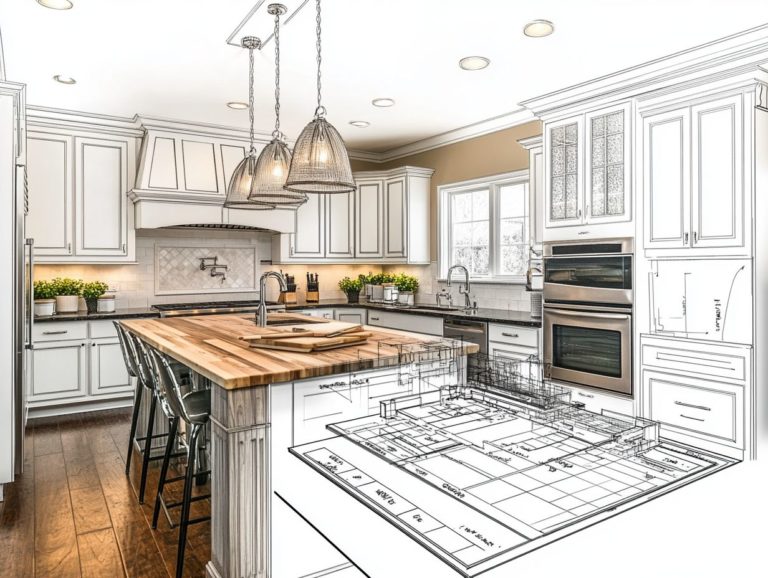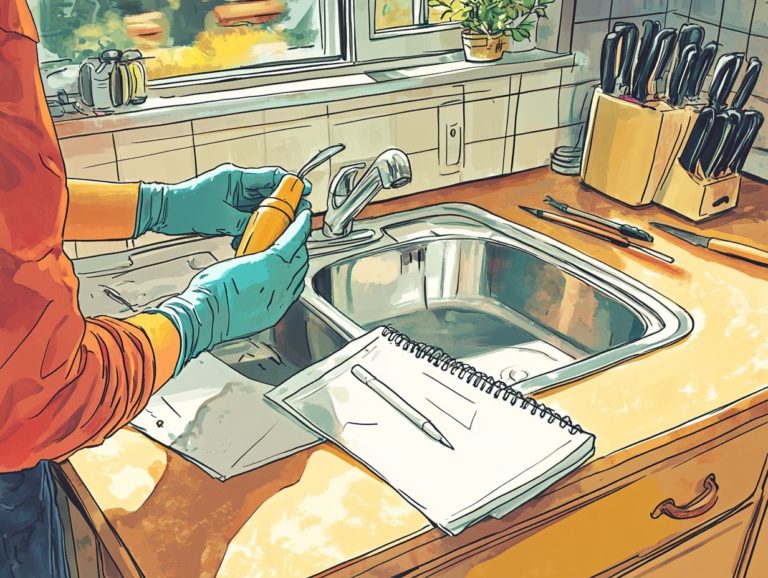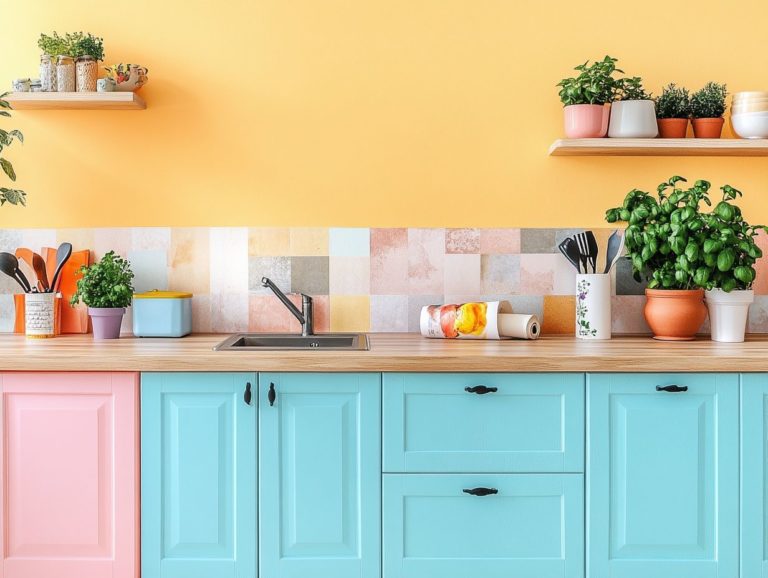Budgeting Basics for Your Kitchen Remodel
Embarking on a kitchen remodel is an exhilarating journey, yet it frequently presents the challenge of managing your budget effectively.
Gaining a clear understanding of the key factors that influence costs is crucial for a successful renovation. This guide will help you craft a budget that works for you!
This guide also explores strategies for maximizing your budget and keeping you on track, ensuring that your dream kitchen becomes a reality without straining your finances.
Contents
- Key Takeaways:
- Understanding Your Kitchen Remodel Budget
- Creating a Realistic Budget
- Cost-Saving Tips for Your Kitchen Remodel
- Maximizing Your Budget
- Staying on Track with Your Budget
- Common Questions About Kitchen Remodeling
- What is the first step in creating a budget for a kitchen remodel?
- How can I save money during a kitchen remodel?
- Should I include a contingency budget in my kitchen remodel budget?
- How do I prioritize my expenses in a kitchen remodel budget?
- Can I negotiate prices with contractors and suppliers during a kitchen remodel?
- How can I keep track of my expenses during a kitchen remodel?
Key Takeaways:
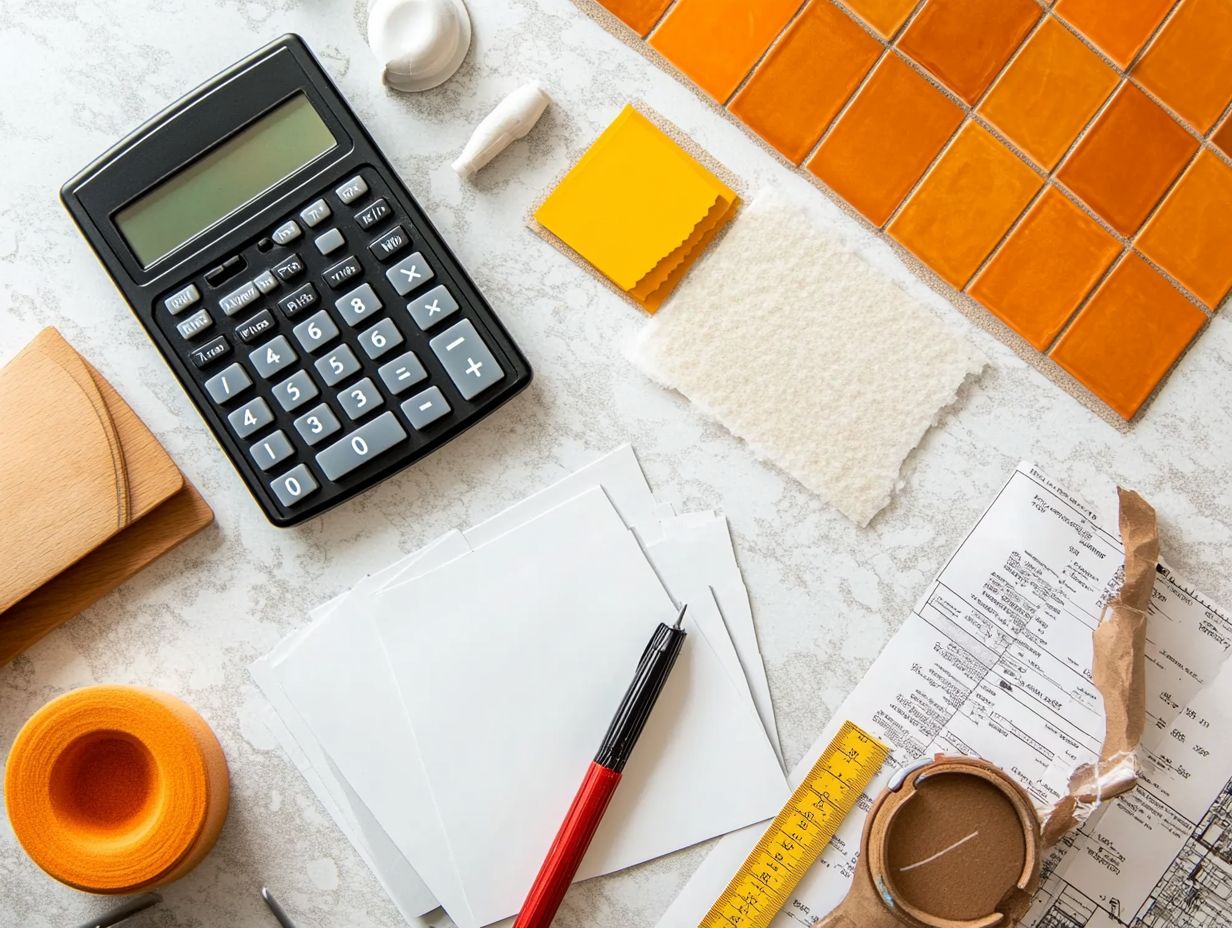
- Consider your needs and wants when creating a budget for your kitchen remodel.
- Maximize your budget by using cost-saving strategies like DIY (do-it-yourself) projects and recycled materials.
- Stay on track with your budget by regularly monitoring and adjusting your spending.
Understanding Your Kitchen Remodel Budget
Understanding your kitchen remodel budget is crucial for navigating the intricate landscape of home improvement projects. A well-planned budget gives you the power to realize your dream kitchen while keeping costs in check.
This process involves assessing important factors that affect costs, including the cabinets in your kitchen, appliance prices, and material selections like countertops and flooring. By thoughtfully considering these elements, you can allocate your funds more effectively. This paves the way for a rewarding and successful kitchen remodeling experience.
Factors to Consider
When you’re planning a kitchen remodel, there are several key factors you need to think about to optimize your costs and create a budget-friendly kitchen that perfectly meets your aesthetic and functional needs.
First and foremost, consider the kitchen layout. A well-thought-out design can significantly influence both material and labor expenses. Next, think about your flooring options. Striking a balance between durability and style can either lead to savings or drive up costs, depending on the materials you select.
Countertop choices are equally important. While granite offers a luxurious appeal, more budget-friendly alternatives like laminate can still provide a stylish look without breaking the bank.
To enhance your budgeting process, it’s wise to gather multiple quotes from contractors and appliance suppliers. This not only gives you a clear view of current market rates but also helps you spot potential savings. This ensures that your remodel aligns seamlessly with both your financial goals and practical needs.
Creating a Realistic Budget
Establishing a realistic budget for your kitchen remodel is essential. It ensures your home improvement projects remain financially sound while maintaining the quality and design you desire.
By carefully planning your expenses, you can achieve a beautiful transformation without stretching your finances too thin.
Assessing Your Needs and Wants
Assessing your needs and wants in a kitchen remodel is a crucial step in ensuring your design perfectly aligns with your lifestyle and budget. Understanding the distinction between these two aspects can significantly impact the overall functionality of your space.
Your needs typically cover essential elements like storage and workspace, while your wants might include aesthetic upgrades, such as stylish countertops or distinctive lighting fixtures. By prioritizing the most critical features first, you can establish a strong foundation for your kitchen.
Engaging in DIY projects not only gives you the power to unleash your creativity but also helps reduce costs, allowing for personal touches without stretching your budget. These projects can range from simple cabinet refinishing to intricate tile work, ultimately culminating in a beautiful and efficient kitchen that caters to both your practical requirements and personal tastes.
Setting Priorities
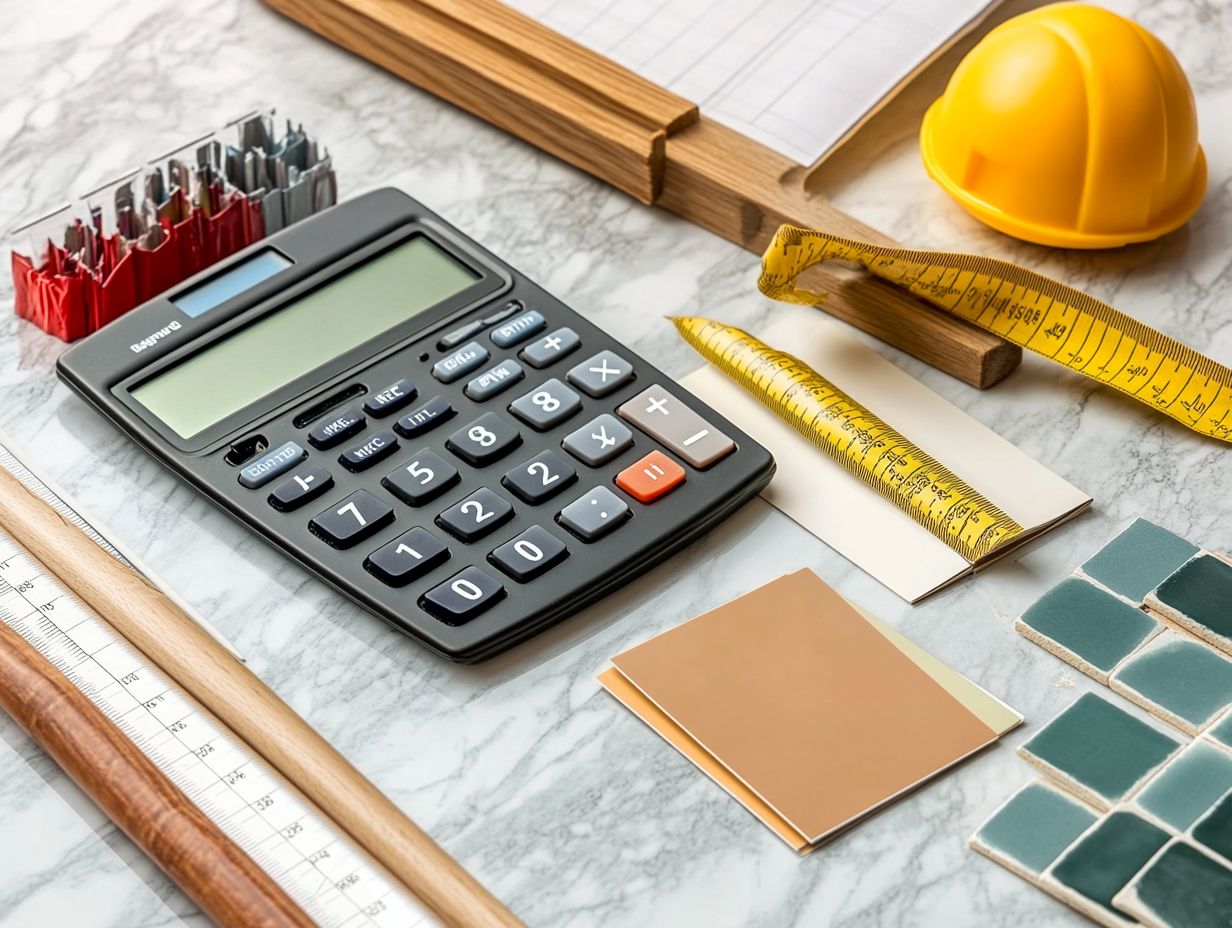
Setting priorities is crucial when crafting your kitchen remodeling budget. It allows you to allocate resources effectively to the aspects of the project that truly matter to you.
By pinpointing your non-negotiables—like high-quality cabinetry or premium countertops—you ensure that these vital elements receive the funding they deserve.
Choosing cost-effective alternatives for hardware or lighting helps balance your overall budget.
It’s also essential to design how your kitchen will be arranged. An efficient kitchen flow can significantly reduce the need for extensive renovations down the line.
Consider enlisting a professional to create a functional layout that maximizes space and caters to your culinary needs. This can enhance your entire remodeling experience.
Cost-Saving Tips for Your Kitchen Remodel
Implementing cost-saving strategies for your kitchen remodel can significantly reduce expenses. You can still achieve the aesthetic and functionality you desire.
DIY vs Hiring Professionals
Choosing between DIY projects and hiring professionals shapes your budget. If you take on the work yourself, you might save on labor, but it can be time-consuming and complicated. Complex tasks, like fixing appliances, often need specialized skills.
Hiring experts ensures the job is done right but can come with hidden costs. Think carefully about which option fits your needs and budget best.
Using Recycled or Refurbished Materials
Using recycled or refurbished materials in your kitchen remodel can save you money and help the environment. This approach avoids waste and cuts costs.
Consider reclaimed wood for cabinets or countertops. It adds unique character while being budget-friendly.
Opting for recycled glass tiles can infuse vibrant flair into your backsplash and showcase your commitment to eco-friendliness.
Maximizing Your Budget
To get the most from your kitchen renovation budget, plan carefully. Each dollar should improve your kitchen’s value and function.
Strategies for Stretching Your Budget
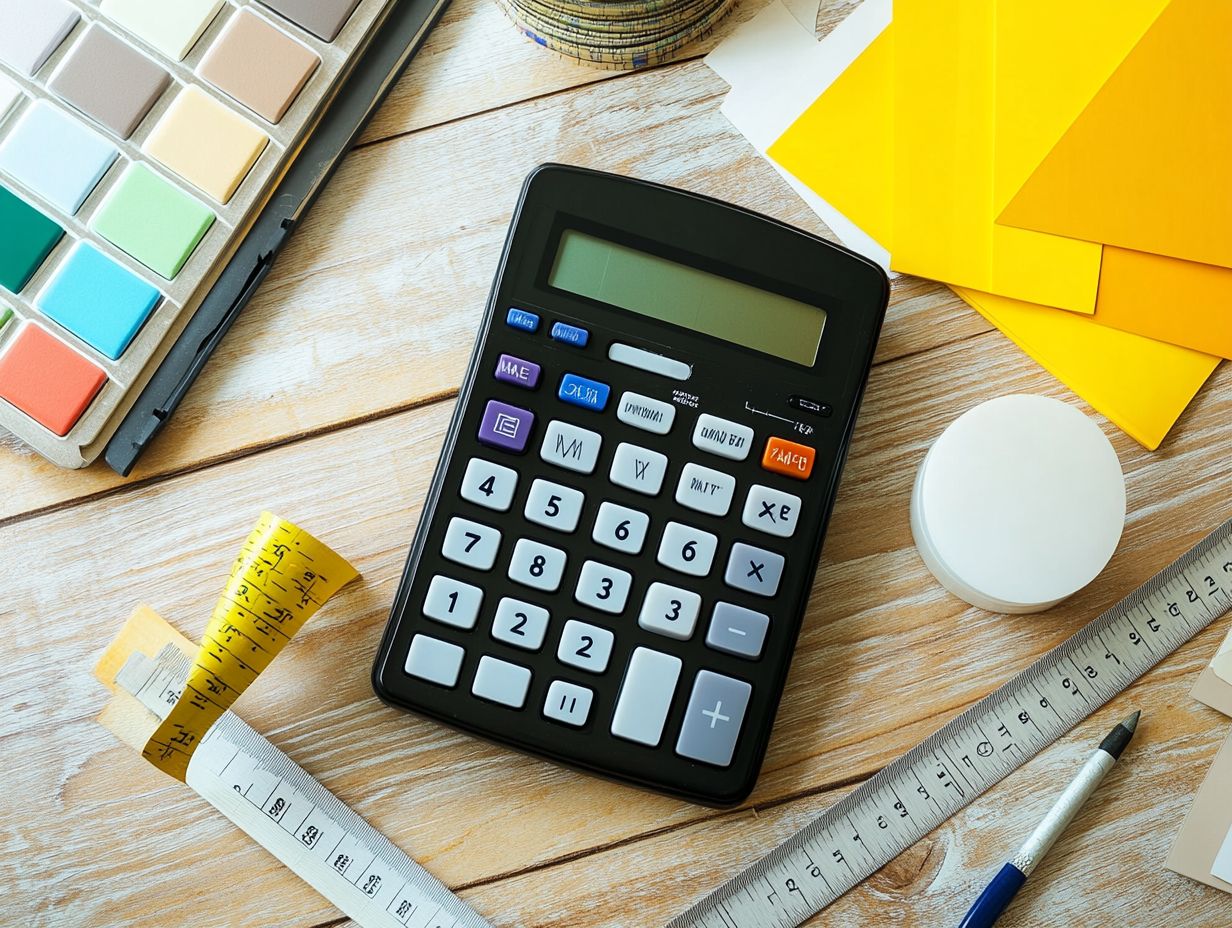
Implementing effective strategies to stretch your budget can enhance the quality of your renovations while keeping your finances in check. Finding cost-effective solutions requires careful planning and astute decision-making throughout the renovation journey.
A well-designed kitchen layout boosts both functionality and aesthetics without emptying your wallet. By prioritizing projects based on their potential impact, you can allocate resources efficiently.
Tackling high-traffic areas or addressing outdated appliances first can provide immediate benefits. Engaging in DIY tasks, hunting for second-hand materials, or negotiating with contractors can lead to considerable savings.
By emphasizing creativity and innovation, you can achieve your dream look while staying within a tighter budget.
Staying on Track with Your Budget
Staying on top of your budget is key to a successful kitchen remodel! It keeps you from overspending and ensures your project concludes positively.
Monitoring and Adjusting Your Spending
Monitoring and adjusting your spending during a kitchen remodel helps you stay aligned with your renovation budget and adapt to unexpected costs.
By carefully tracking your expenses and maintaining a flexible budget, you’ll find it easier to make informed decisions about materials and designs that match your financial goals. This approach reduces financial stress and lets you prioritize features that genuinely enhance functionality and aesthetics.
As you explore various options, you’ll notice how these financial considerations impact your choices in kitchen layouts—whether you prefer open-plan designs that welcome natural light or compact, efficient arrangements that maximize space.
Ultimately, these budget-conscious strategies empower you to create a dream kitchen that artfully balances style and practicality.
Common Questions About Kitchen Remodeling
What is the first step in creating a budget for a kitchen remodel?
The first step is determining your overall budget. Consider how much you can realistically afford and how much you’re willing to invest in the project.
How can I save money during a kitchen remodel?
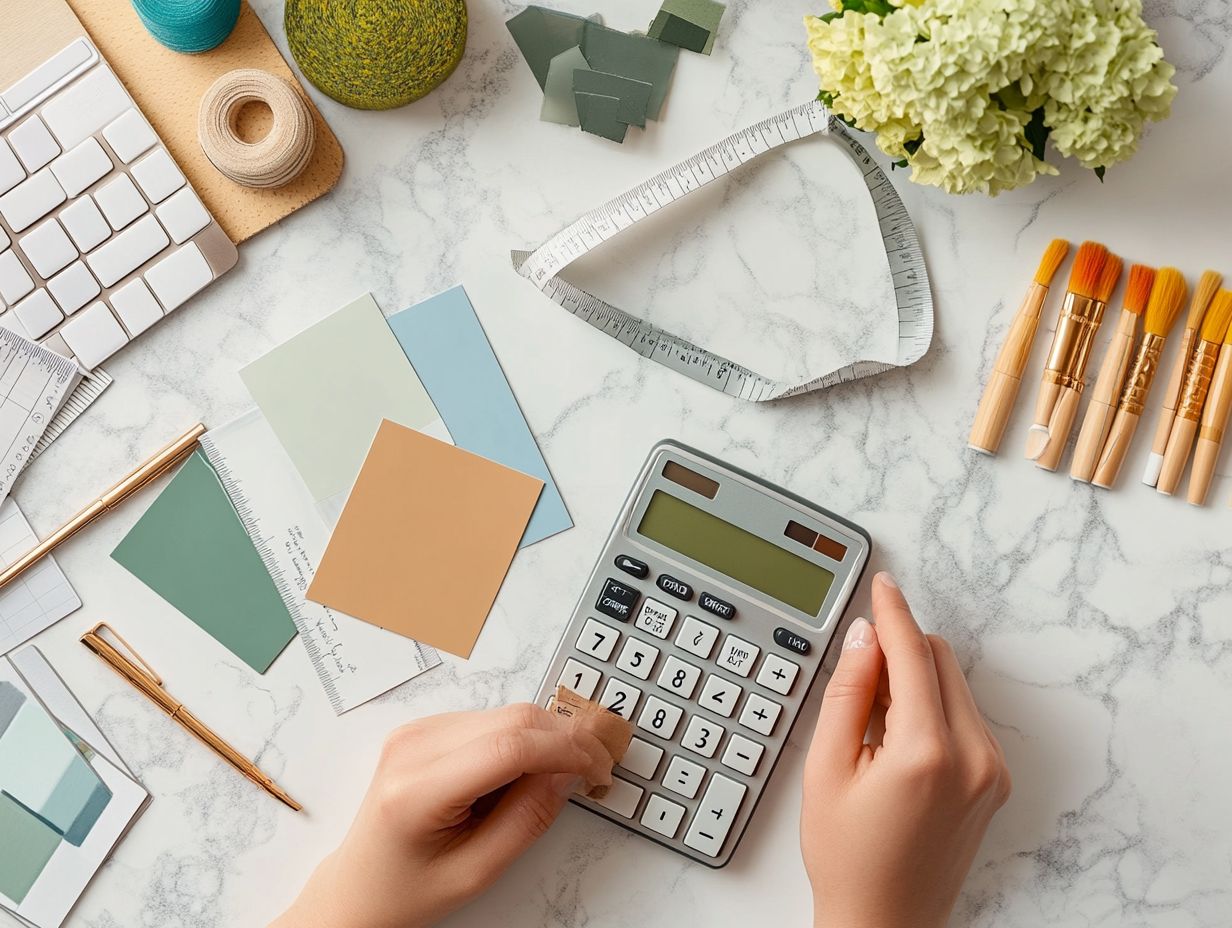
There are several ways to save money during a kitchen remodel. Choose affordable materials, do some of the work yourself, and shop around for the best deals on appliances and fixtures.
Should I include a contingency budget in my kitchen remodel budget?
Yes, it’s wise to include extra money set aside for surprises in your kitchen remodel budget. A good rule of thumb is to reserve at least 10-20% of your budget for contingencies.
How do I prioritize my expenses in a kitchen remodel budget?
Focus on the essentials first, such as structural changes, plumbing, and electrical work. Then, allocate funds for aesthetic upgrades and non-essential items.
Can I negotiate prices with contractors and suppliers during a kitchen remodel?
Yes, it’s possible to negotiate prices with contractors and suppliers. Always get multiple quotes and compare prices before making a decision. Try negotiating to see if you can secure a better deal.
How can I keep track of my expenses during a kitchen remodel?
Create a spreadsheet or budgeting tool to input and track all of your expenses in one place. Regularly review your budget to stay on track and make adjustments as needed!
